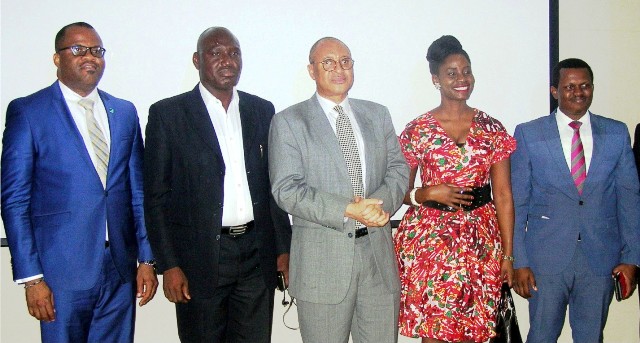Business
Senate Bars NNPC, Others From Spending Money

The Senate has directed the Nigerian National Petroleum Corporation (NNPC) and other revenue generating agencies to stop further capital expenditure until they comply with the Fiscal Responsibility Act.
It said that the agencies had violated the Act and gave them two weeks to submit their budgets in accordance with the provisions of Section 21 of the law.
The directive was sequel to a motion on “Non-submission of 2017 Budget by Public Corporations in Violation of the Fiscal Responsibility Act” moved by the Deputy Senate Leader, Bala Na’Allah, at Wednesday’s plenary.
He said that the Act stipulated that government’s revenue-generating agencies should submit to their supervising ministers, estimates of revenue and expenditure for three years ahead.
Na’Allah said that the submission of the estimates, as contained in the Act, should be done not later than six months from the commencement of the Act and for every three financial years thereafter.
“It should also not be done later than the end of the second quarter of every year’’.
He said that non-compliance with the provisions of the Act amounted to abuse of power and economic sabotage aimed at frustrating current economic measures being taken by the present administration to revive the economy.
He pointed out that the absence of penalties in the provisions of the Act had emboldened and encouraged the perpetration of infractions on it.
The legislator stated that the Fiscal Responsibility Commission was failing in its responsibility in executing of its mandate, owing to complacency.
In his contribution, Deputy President of the Senate, Mr Ike Ekweremadu, said “we are here talking about responsibility of governance, there cannot be any hard responsibility than Fiscal Responsibility because that is the beginning of all evils.
“We must begin to ensure that we live by the laws we make for ourselves.
“If we say that ministers are supposed to send the estimates of various agencies under them with the Appropriation Act of each year that has to be done.
“I recall in 2016, President Muhammadu Buhari sent to this National Assembly the Appropriation Act for that year together with those estimates.
“But, in 2017, the ministers find it impossible to accompany the same Appropriation Bill with those estimates of the agencies under them.
“We cannot be going forte and back. I believe that this is time for us to insist under Section 88 that gives us power of oversight that this has to be done.
“We make laws here for the good governance of this country and that is actually what we have to insist,” he said.
In his remarks, President of the Senate, Dr Bukola Saraki, said that the motion was at the heart of the fight against corruption.
“It is very important that some independent revenue agencies even exceed how much we get from oil revenue.
“So, this is a huge amount to our revenue line. We are talking about looking for money to fund projects, hospitals, education etc; this is where the source of the revenue is.
“And, I cannot see how we can continue in a society where we are fighting corruption, where people will be spending money without approval, without appropriation.
“It must stop; it will stop and is going to stop from now,” Saraki said.
Business
Two Federal Agencies Enter Pack On Expansion, Sustainable Electricity In Niger Delta

Business
Why The AI Boom May Extend The Reign Of Natural Gas

Business
Ogun To Join Oil-Producing States ……..As NNPCL Kicks Off Commercial Oil Production At Eba

-

 Sports3 days ago
Sports3 days ago2026 WC: Nigeria, DR Congo Awaits FIFA Verdict Today
-
Politics3 days ago
ADC, PDP, LP Missing As INEC Set For By- Elections In Rivers
-

 Environment3 days ago
Environment3 days agoOxfam, partners celebrate 5 years of climate governance programmes in Nigeria
-
Politics3 days ago
FG’s Economic Policies Not Working – APC Chieftain
-

 Politics3 days ago
Politics3 days ago2027: Diri Unveils RHA LG Coordinators, APC Congress Panel
-

 Politics3 days ago
Politics3 days agoReps To Meet,’Morrow Over INEC’s 2027 Election Timetable
-

 Politics3 days ago
Politics3 days agoGroup Continues Push For Real Time Election Results Transmission
-
Sports3 days ago
Sunderland Overcome Oxford Challenge

